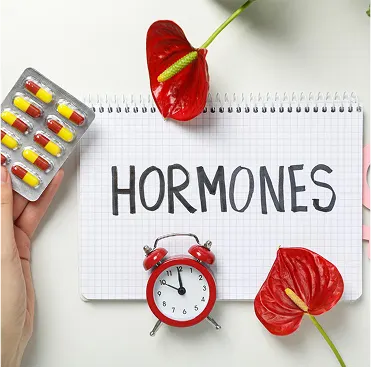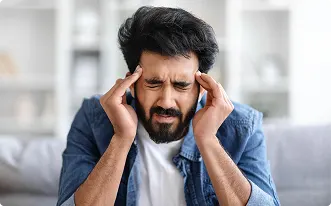Feeling constantly tired, sluggish, or low on motivation may not just be due to a busy schedule or lack of sleep.
Hormonal imbalances can play a significant role in regulating your daily energy levels.
Hormones act as messengers in your body, controlling processes like metabolism, sleep cycles, and stress response.
When these signals are disrupted, your energy can plummet, affecting both physical performance and mental clarity.
Key Hormones That Impact Energy
1. Thyroid Hormones
Thyroxine (T4) and triiodothyronine (T3) from the thyroid gland regulate metabolism. Low thyroid hormone levels can cause fatigue, slow metabolism, and weight gain. Overactive thyroid, on the other hand, can make you feel jittery, anxious, and restless, also affecting energy balance.
2. Cortisol
Cortisol, often called the stress hormone, helps your body respond to stress and regulates energy throughout the day. Chronic stress or adrenal dysfunction can cause cortisol levels to spike or drop inappropriately, leading to fatigue, brain fog, and difficulty waking up in the morning.
3. Insulin
Insulin regulates blood sugar levels. When insulin is imbalanced, it can lead to energy crashes, sugar cravings, and feelings of tiredness, especially after meals. Insulin resistance is a common underlying factor in low energy for many people.
4. Sex Hormones
Estrogen, Progesterone, and Testosterone. In women, estrogen and progesterone fluctuations during menstrual cycles, menopause, or hormonal disorders can cause fatigue, mood swings, and sleep disturbances. In men, low testosterone levels can result in decreased energy, motivation, and muscle strength.
5. Melatonin
Melatonin controls sleep cycles. Imbalances can disrupt sleep quality, leaving you tired throughout the day even after adequate rest.

Signs Your Hormones May Be Affecting Energy
- Feeling tired despite 7-8 hours of sleep
- Difficulty concentrating or experiencing brain fog
- Sudden weight gain or loss without lifestyle changes
- Mood swings, irritability, or anxiety
- Changes in appetite or sugar cravings
- Poor recovery after exercise or physical activity
Restoring Balance and Boosting Energy
Addressing hormonal imbalances involves a combination of lifestyle, diet, and medical care:
- Balanced Diet: Include protein, healthy fats, whole grains, and micronutrients that support hormone production.
- Regular Exercise: Helps regulate insulin, cortisol, and sex hormones, improving overall energy levels.
- Stress Management: Practices like meditation, yoga, or deep breathing can help keep cortisol levels in check.
- Sleep Hygiene: Maintain consistent sleep schedules and reduce exposure to screens before bed to support melatonin.
- Medical Consultation: Blood tests and hormone assessments can identify specific imbalances. Your doctor can suggest supplements or treatments as needed.
Hormonal imbalances can silently drain your energy, affecting work, relationships, and overall quality of life. Recognizing the signs and taking proactive steps to restore hormonal balance can lead to sustained energy, improved mood, and better health.
Paying attention to your body and consulting healthcare professionals when needed is the key to maintaining vitality every day.






